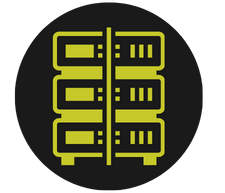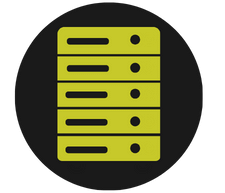When choosing the best server CPU, several factors must be considered to ensure optimal performance. In this post, we will detail important factors that you should consider when selecting a CPU for your dedicated server in 2024.
Main Takeaways
What is a CPU? What are Server Cores?
A CPU (Central Processing Unit) is the primary component of a computer that performs most of the processing inside a computer. In the context of server hosting, a CPU can be broken down into several smaller pieces that make up the larger processor:
Generally speaking, most CPUs have 2 threads per core. Different brands of CPU have different ways of handling core count, clock speed, thread count, and cache.
Cores vs. Clock Speed: Which is Better For a CPU?
When deciding on which CPU to choose for your dedicated server or VPS, what should you prioritize first: cores, or clock speed? Well, the answer is a little complicated.
When looking for a server CPU, factoring in performance is a must. Some people choose to determine performance by multiplying the number of cores by the number of threads. This number will typically give a good starting base to determine how many instructions a CPU can handle at one time. This tends to give a good baseline to compare one processor to another for most people.
Single vs. Multicore Server Processors
Unfortunately, determining performance isn't as simple as calculating the number of instructions your CPU can handle. The most important thing you can do is to decide whether or not your use case is single or multicore.
When deciding whether or not to choose a certain CPU, answering this question will point you in a great direction. If your use case involves an application that is single cored, focus solely on the clock speed of your CPU to get the most calculations in a given second. If your use case involves multitasking (serving video content, database management, game server hosting, etc.) then go for a server that has a high core count.
Server vs. Desktop Processors: Which One Should I Choose?
The server processors vs. desktop processors debate is one that has been around for decades in the server hosting industry. Both types of CPUs have their advantages and disadvantages.
Choosing a Server CPU: When Should You?
Generally speaking, server processors are best for a wide range of use cases where:
Generally speaking, most server grade CPUs are Intel processors. At most providers, you can usually rent server grade CPU dedicated servers at a great entry level price.
Atomic Networks currently offers the following Intel Xeon Processor based CPUs for rental as dedicated servers:
When to Buy a Desktop CPU Dedicated Server
Desktop processors also have their use cases in the dedicated server hosting space, usually within the context of gaming. The reason for this is that most games run on these processors better than their server processor counterparts.
Desktop processors offer a great solution for situations where:
Atomic Networks currently offers the following desktop based CPUs for rental as dedicated servers:
Conclusion
When selecting the ideal CPU for your needs, several factors need consideration. Initially, determine the primary functions of your server. For heavy-duty tasks such as video editing or 3D rendering, opt for a CPU with high clock speeds and multiple cores. Conversely, for less demanding activities like web hosting or managing emails, a less robust CPU will suffice.
If you are still having trouble deciding what CPU you need for your business, don't hesitate to contact us. Just open a ticket, we have the experience to help you find a solution to your hardware problem at a great price.


